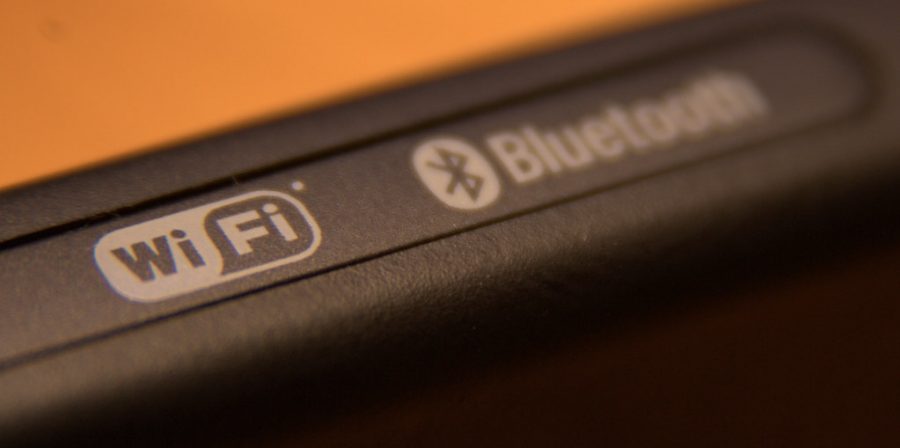Mayoral candidate Michelle Wu releases digital equity plan
“Bluetooth & WiFi” by michperu is licensed under CC BY 2.0
Boston mayoral candidate and City Councilor Michelle Wu’s digital equity plan calls for the expansion of free public Wi-Fi and access to reliable internet for all Boston residents.
February 28, 2021
Earlier this month, Boston mayoral candidate and City Councilor Michelle Wu released a plan to improve equity in technology and internet access for Boston residents. The five-part plan, titled “Building a Connected City: Digital Equity Through Boston’s Recovery & Beyond,” comes at a time when virtual interconnectivity is vital for Boston’s students as well as for residents living in the city who are working remotely.
“This recognizes just how fundamental connectivity is to the city,” Wu said at a press conference for student journalists held Feb. 6. “In the pandemic, we’ve seen schools go to remote learning, we’ve seen healthcare for telehealth, we’ve seen city meetings and important legal processes all go online. In some ways, that’s been great for accessibility, but it has enhanced the digital divide as well.”
Wu’s plan seeks to address the 15% of households in Boston that do not have a subscription to internet service at home and rely solely on data and cell phone plans, as well as the more than 32,000 households in Boston that have no internet access at all. To remedy this, the plan includes a proposal to create a municipal broadband network in Boston.
“As part of our plan, there is basically a focus to make sure that we are providing high-quality access to reliable internet across the city,” Wu said. “In some ways, Boston is lucky that we have five different internet service providers, but when you go neighborhood by neighborhood, it’s not that every resident has five choices. It’s a patchwork, and sometimes what is promised is not what’s delivered and there’s still huge gaps that we see in our communities.”
Although there are relatively cheap options available for residents, not all low-cost options provide the same quality or amount of coverage. For example, the provider RCN offers fiber optic internet for $34.99 a month, but only has 42% availability in Boston according to Allconnect, an online resource that helps users shop for home services. And although satellite internet providers Viasat and HughesNet are available everywhere in Boston, they offer slower service (12-100 Mbps and 25 Mbps respectively).
Wu said that creating a municipal broadband would allow the city more direct control over quality, cost and reliability.
The plan also calls for the installation of free public Wi-Fi along bus routes most heavily used by Boston Public School, or BPS, students and those who rely on cellular data for internet access. To do this, Wu hopes to build on the city’s existing public Wi-Fi service, “Wicked Free Wi-Fi,” launched by Mayor Walsh in 2014.
“The City began deploying free, outdoor public Wi-Fi (Wicked Free Wi-Fi) along commercial corridors in Boston’s neighborhoods as well as city parks in 2014,” Wu said in an emailed statement. “We should use a similar approach to increase connectivity along MBTA bus routes and at T stations, beginning with those routes that are most heavily utilized by BPS students and community members whose primary means of accessing the internet is through their smartphone.”
In addition to the creation of municipal broadband, Wu’s plan calls for the city to provide students, seniors, adult learners and business owners with better access to technology and internet; improve telehealth and digital mental healthcare for residents; and increase free internet access in jails and prisons.
“The pandemic underscores the consequences of the digital divide, showing more clearly than ever all the ways that affordable, reliable internet, computers and digital skills are so important in our lives,” Wu said in an email. “We needed digital equity before the pandemic, and we must close the gaps now in order to secure a just and equitable recovery.”







